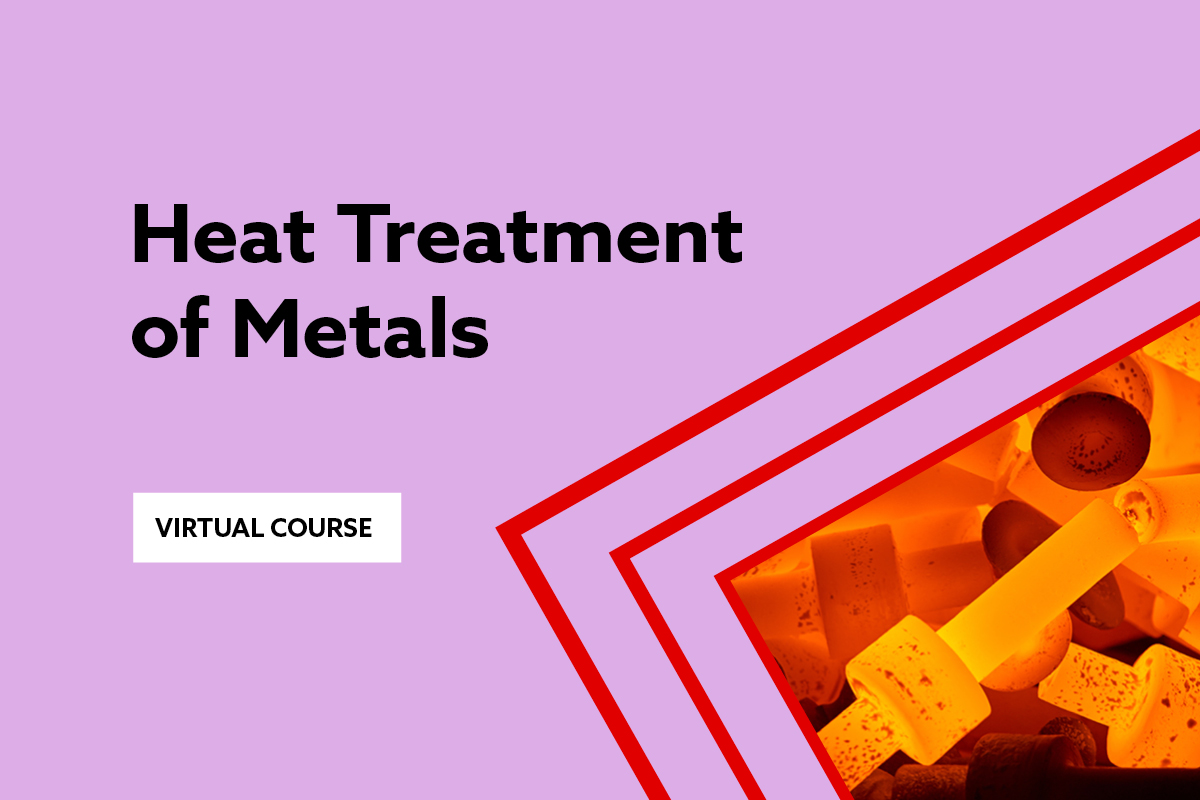The next virtual course will take place on Wednesday 17 September 2025.
We are delighted to be working with experienced trainer Clayton Thomas to offer this one-day short course introducing the Fundamentals of Heat Treatment.
Heat treatment plays a vital role in defining the performance of engineering alloys. This course provides delegates with a clear understanding of why heat treatment is important, particularly in relation to steels, and how different processes influence microstructure and material properties. It also introduces the typical heat treatments used for non-ferrous alloys. Key methods such as annealing, quenching and tempering will be discussed, along with the impact of critical parameters like time and temperature. The knowledge gained will support informed decision-making in both design and manufacturing contexts.
Who should attend the course?
How much does the course cost?
- We have increased the IOM3 member discount for this course from 10% to 20% for the rest of 2025, so the preferential fee for IOM3 members is £456.
- A limited number of places are available at the highly discounted rate of £99 for Student & Early Career members of IOM3*.
- Subscribers to our Business Partner Programme are entitled to a 10% discount, making the course fee £515.
- The non-member rate for this one-day course is £570. Find out about joining IOM3 here.
- Secure your place more than 8 weeks before the course date to receive an additional early bird discount of 10%.
* This rate is available to Student & Apprentice, and Associate (AIMMM) member grades.
Course fees are subject to VAT at 20% where applicable.
How is the course structured?
Why Heat Treat:
- Mechanical properties and heat treatment
- Alloy microstructure and heat treatment
- Heat treatment for processing eg forming, welding and machining
Heat Treatment of Steel:
- Effect of heat treatment on microstructure and properties
- Phases and Heat treatment : austenite, ferrite, pearlite, martensite, bainite
- Iron- Carbon Phase diagram
- Continuous cooling and transformation diagrams
- Hardenability
- Types of Heat Treatment: Annealing, Normalising, Quenching and Tempering
- Heat Treatment and stainless steels
- Heat Treatment and welding
Heat Treatment of Non Ferrous Alloys:
- Aluminium heat treatment including artificial and natural ageing
- Typical heat treatment applied to Titanium alloys
- Typical heat treatment of high temperature nickel alloys
The Heat Treatment Process:
- Furnace types : Batch and continuous
- Flame and induction methods
- Importance of Time and Temperature
- Furnace atmospheres
- Monitoring methods
- Furnace loading and quenching

Register to attend the next course
Virtual course using Zoom
9:30am to 4:30pm Wednesday 17 September


